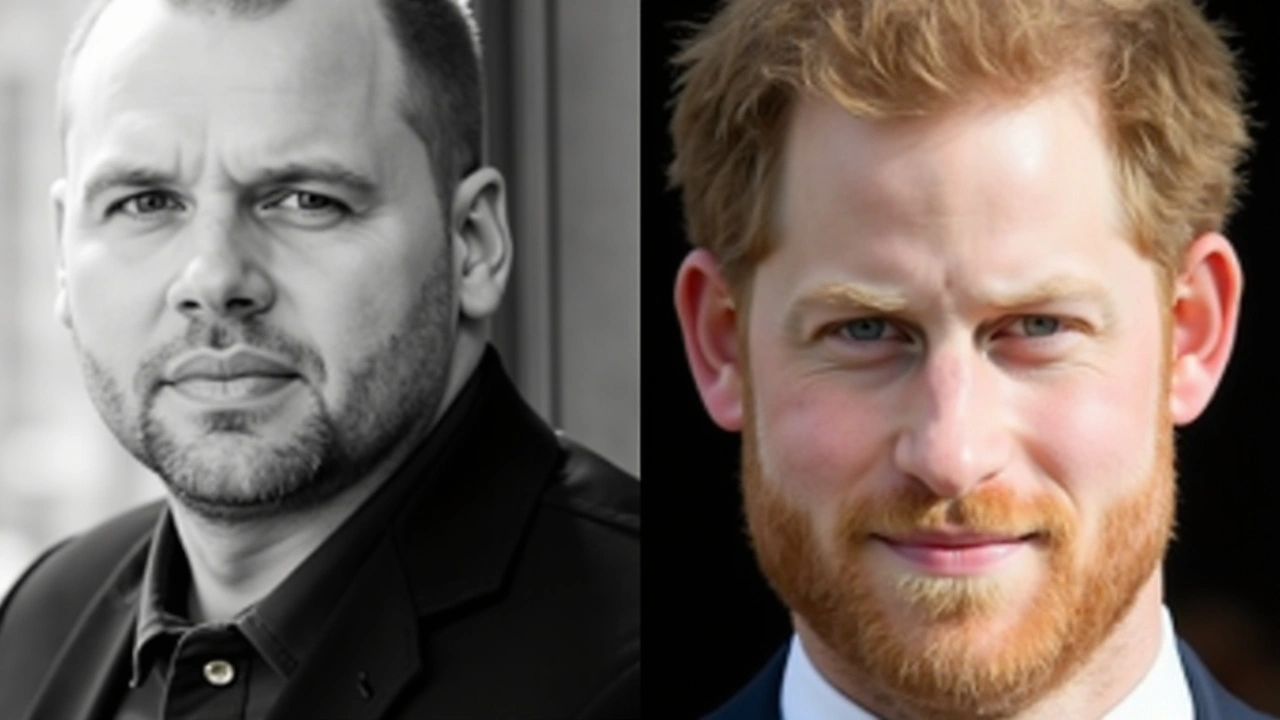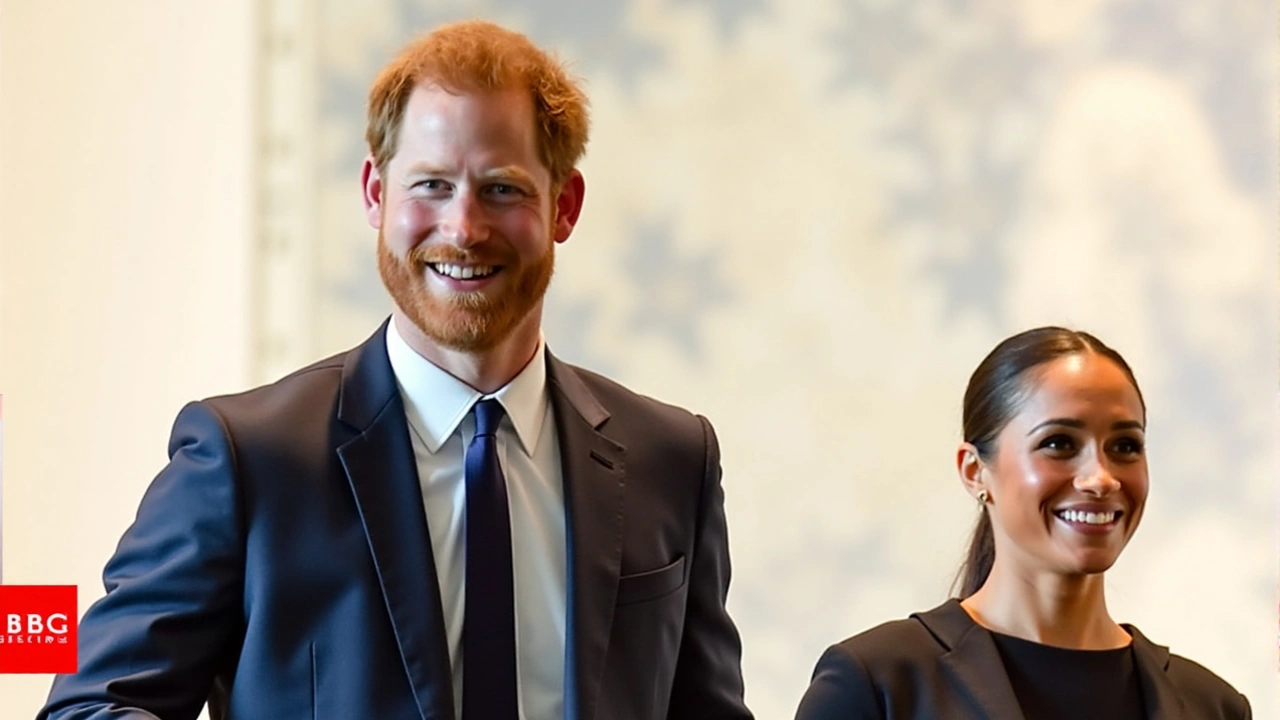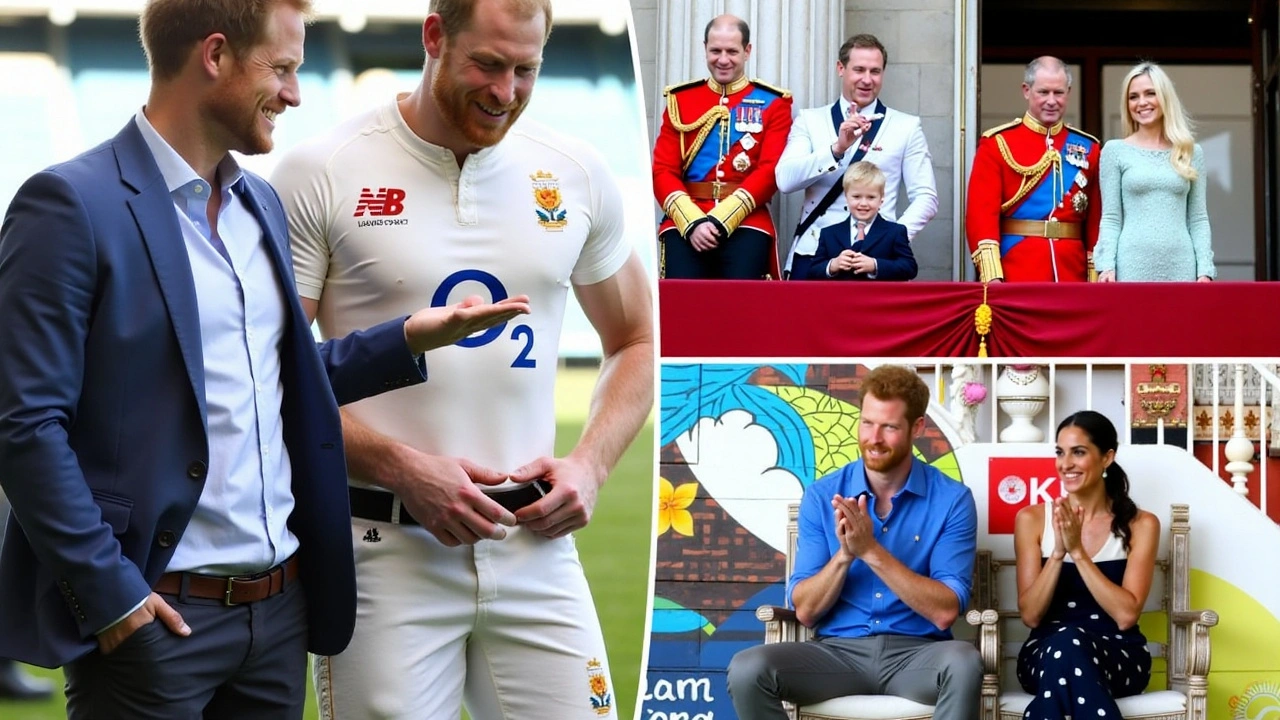Royal Family's Inner Struggles: Insights from Prince Harry's Friend James Haskell

Royal Family: A Glimpse Behind the Palace Walls
Humanizing the British royal family often involves peeling back layers of pomp and circumstance to reveal a familial unit with its fair share of challenges. Stepping into this arena with an insider's perspective is James Haskell, a close companion to Prince Harry and a former English rugby star, who recently stirred public interest with his blunt assessment of the royals’ personal dynamics. Haskell’s declaration that the royal family is 'very dysfunctional' nudges the public to re-evaluate their royal idolatry, focusing not just on hats and pageantry but on the individuals and the lives they lead.
For outsiders, the royal family appears as a well-oiled machine of sophistication and privilege. Tradition and duty converge to form an image of composed stability, yet, beneath this polished surface lies a more relatable narrative. Haskell's insider testimony comes across as a frank reminder of the monarchy's humanity. They face trials not unlike those in any family across the globe, albeit under the incessant scrutiny of the world’s gaze. The spectacle of royalty can sometimes eclipse the reality of personal struggles and familial discord, making Haskell's assertions particularly poignant.

The Balance Between Public Duties and Private Lives
Emphasizing the disparity between image and reality, Haskell’s observations spotlight the striking dichotomy facing the monarchy. While the Windsors undertake countless public engagements and philanthropy, their privileges coexist with an intrinsic load of expectation and tradition. These pressures often forge a path fraught with personal sacrifice and complex relationships within their family circle. Such an environment can foster both resilience and dysfunction in equal measure. Haskell’s candidness suggests a royal landscape that accommodates both traditional values and the modern need for familial introspection and reform.
The royal family's purported dysfunction suggests that like any family, they contain weaknesses and areas for improvement. It’s crucial to consider, however, that alongside these imperfections reside unparalleled achievements and global influence. Haskell’s comments indicate that though some family members excel in their duties, others may struggle, highlighting a natural imbalance that occurs in families, royal or otherwise. Through his remarks, Haskell offers a more nuanced perspective—one that appreciates the family’s extensive accomplishments while acknowledging their human imperfections.

A Modern Monarchy Under the Lens
Historians and analysts have long noted that the strength of the British monarchy stems from its ability to evolve with the times. However, this shift is arduous and bumpy, blurring the line between personal desires and public expectations. James Haskell's insights gain further relevance when framed within the royal family's ongoing journey through modernity’s challenges. His bond with Prince Harry adds credibility to these claims, echoing Harry’s own public endeavors to untangle his life from royal constraints in pursuit of a personal identity.
Prince Harry’s relationship with the royal establishment embodies both the tension and potential for transformation within the institution. Haskell, by aligning his perspective with Harry’s occasionally dissenting voice, lends weight to the idea that even the most illustrious family in the UK is grappling with issues of identity and function. The monarchy’s ability to engage with modern societal issues, such as mental health awareness and sustainable practices, speaks to its capacity for reform despite underlying family complexities. The ongoing dialogue about reshaping their roles and relevance garners immense public attention, indicating a willingness from the royals to step outside normalized confines in favor of personal growth and unity.

Confronting Family Dynamics in the Spotlight
James Haskell’s comments open the door for deeper reflection on the monarchy’s collective identity. This reflection is, of course, steeped in tradition and ongoing change. Haskell paints a picture of a family that, beneath regal veneers, is still figuring out how to effectively balance internal family harmony with their public obligations. The discussion conjures images of a family reaching towards a semblance of normalcy while navigating the intricacies of status and tradition. In sharing these thoughts, Haskell taps into a broader narrative circling the royal family: that of transformation and the continuous quest for self-reconciliation in the limelight.
In light of such insider commentary, the public might redefine its understanding of the royal family from an idealized concept to a group of individuals striving for improvement and understanding within constraints. Haskell’s remarks, when juxtaposed with the royal family's ongoing charitable work, underscore a dynamic and multifaceted role that extends beyond appearances. As the monarchy stands at a crossroad of tradition and modernity, insights like those from Haskell serve to deepen public empathy, shedding light on the royal family’s human element interwoven with their storied legacy.